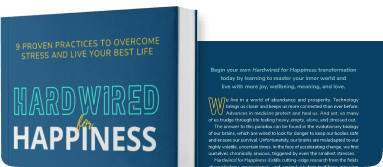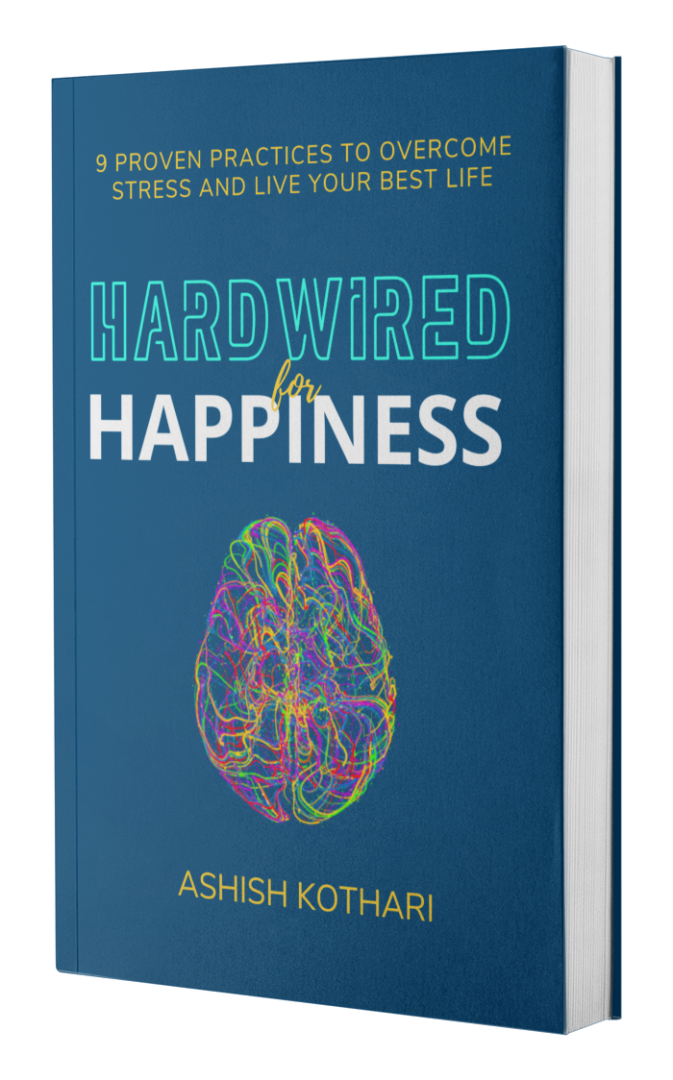How Gratitude Can Rewire Our Brains For Happiness

Brother David Steindl-Rast said, “It is not the happy that are grateful. It is the grateful that are happy.”
Why is that? Gratitude helps us overcome two core things that make us unhappy: hedonic adaptation and our brain’s wiring for fear.
Hedonic adaptation
Imagine you’re working towards a promotion, and telling yourself, “If I get this promotion, I’ll be happier.”
Then imagine that you get the promotion. You’re on top of the world!
Now, imagine a year has passed since your promotion. How happy are you? It probably reset, right? Months later, the promotion actually had no effect on your long-term happiness.
This is a hedonic adaptation. Academic researcher, Sonja Lyubomirsk, found that about 50% of our happiness is based on genetics, growing up, or experiences that we have. So we have a set level of happiness in our lives and no matter what the new amazing thing is, we will always reset to our natural level of happiness.
A brain wired for fear
20000 years ago we were nomads trying to survive. We weren’t as strong as our predators, so we had to be smarter. This wired our brains to always look for things that weren’t right, that might hurt us. And that’s why we focus more on what’s missing, rather than what’s already there.
A professor tested this by asking his students to write an essay about a piece of paper with a black dot on it. Every single one of them wrote their essays about the dot on the page. Some described its size, shape, or where it was on the page.
But you know what nobody wrote about? The white space on the paper. The dot was tiny and yet no one wrote about the vast amounts of white space. And that’s how we experience life.
We notice the granularity of things that aren’t right, but when we look at the abundance we see it in generalities.
So, if I asked someone, “What parts of your body are you unhappy about?” They would say something like, “I wish my hair was straighter.” But if I asked the same person, “What are you grateful for?” They’d probably say, “I’m grateful for my health.”
Notice how the negative thing is very specific? But the gratitude answer was very broad. Which is easier to focus on?
And that’s because of how our brain is wired.
Practicing gratitude helps with these roots of unhappiness. That’s where the gratitude journal comes in. Grab a pen, find a piece of paper, or a brand new journal and answer this question:
What are three to five things that you’re grateful for right now?
This exercise will help you check in each day and focus on the good in your life right now, it also strengthens and rewires your brain to focus on the good that’s there rather than what’s missing.
And as you practice this, try to notice how it shifts your perspective of the world.
Lyubomirsky, S. (2011). Hedonic adaptation to positive and negative experiences. In S. Folkman (Ed.), The Oxford handbook of stress, health, and coping (pp. 200-224). New York: Oxford University Press.


